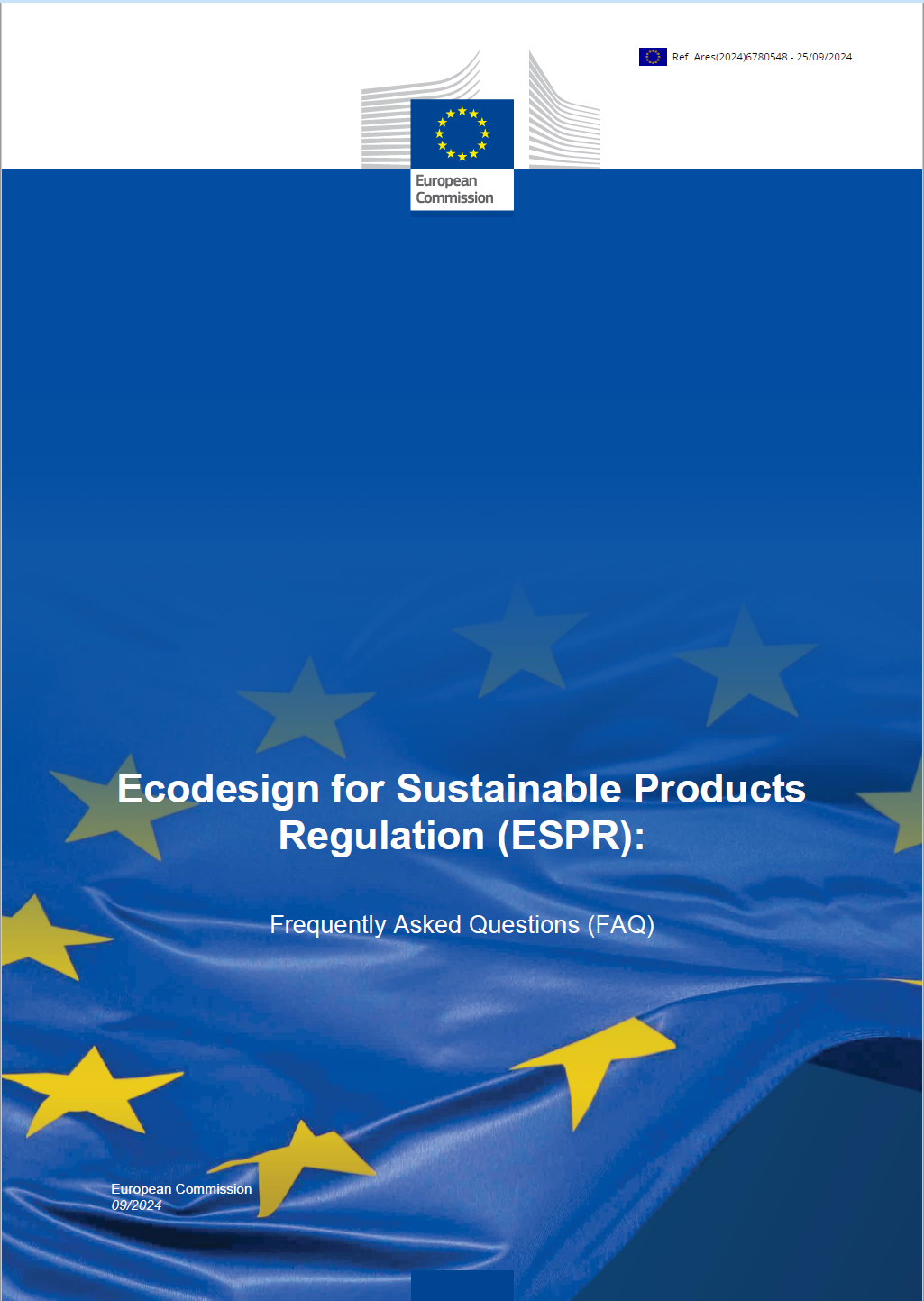| 1 x afterRenderComponent com_content (528.84KB) (14.81%) | 42.87ms |
| 1 x afterInitialise (3.35MB) (13.38%) | 38.73ms |
| 1 x afterRenderRawModule mod_menu (Temi) (292.94KB) (12.22%) | 35.38ms |
| 1 x afterRenderRawModule mod_menu (Main Menu) (21.86KB) (9.08%) | 26.27ms |
| 1 x afterRender (835.17KB) (8.6%) | 24.88ms |
| 1 x After Access::preloadPermissions (com_content) (16.82MB) (7.74%) | 22.41ms |
| 1 x afterRenderRawModule mod_articles_categories (Marcatura CE) (930.8KB) (5.94%) | 17.20ms |
| 1 x afterRoute (366.31KB) (4.87%) | 14.10ms |
| 1 x beforeRenderRawModule mod_login (Accedi all'area riservata) (1.75MB) (4.09%) | 11.83ms |
| 1 x afterLoad (86.71KB) (2.41%) | 6.98ms |
| 1 x afterRenderRawModule mod_menu (Documenti Abbonati) (164.93KB) (1.95%) | 5.65ms |
| 1 x afterRenderRawModule mod_menu (Top Menu) (31.08KB) (1.42%) | 4.11ms |
| 1 x afterRenderRawModule mod_menu (Policies) (23.48KB) (1.34%) | 3.89ms |
| 1 x afterRenderRawModule mod_menu (Marketing) (20.39KB) (1.17%) | 3.39ms |
| 1 x beforeRenderRawModule mod_menu (Main Menu) (33.91KB) (1.09%) | 3.17ms |
| 1 x afterRenderRawModule mod_menu (Store) (18.38KB) (1.02%) | 2.94ms |
| 1 x afterRenderRawModule mod_menu (Social) (60.09KB) (1.01%) | 2.91ms |
| 1 x afterRenderRawModule mod_menu (Media) (14.41KB) (0.85%) | 2.45ms |
| 1 x afterRenderRawModule mod_login (Accedi all'area riservata) (62.87KB) (0.82%) | 2.38ms |
| 1 x afterRenderRawModule mod_menu (Info) (11.67KB) (0.7%) | 2.01ms |
| 1 x Before Access::preloadComponents (all components) (34.53KB) (0.69%) | 2.01ms |
| 1 x beforeRenderComponent com_content (37.2KB) (0.57%) | 1.64ms |
| 1 x Before Access::getAssetRules (id:45906 name:com_content.article.22651) (514.65KB) (0.21%) | 616μs |
| 1 x afterRenderModule mod_menu (Main Menu) (11.27KB) (0.19%) | 558μs |
| 1 x After Access::preloadComponents (all components) (115.88KB) (0.17%) | 485μs |
| 1 x afterRenderModule mod_articles_categories (Marcatura CE) (34.48KB) (0.16%) | 476μs |
| 1 x afterRenderModule mod_custom (Certifico s.r.l.) (3.36KB) (0.16%) | 466μs |
| 1 x afterRenderModule mod_menu (Info) (3.05KB) (0.16%) | 465μs |
| 1 x afterRenderModule mod_menu (Temi) (22.67KB) (0.16%) | 463μs |
| 1 x afterRenderModule mod_menu (Marketing) (3.3KB) (0.16%) | 461μs |
| 1 x afterRenderModule mod_menu (Social) (3.92KB) (0.16%) | 460μs |
| 1 x afterRenderModule mod_menu (Media) (3.11KB) (0.16%) | 456μs |
| 1 x afterRenderRawModule mod_custom (Certifico s.r.l.) (4.22KB) (0.16%) | 453μs |
| 1 x afterRenderModule mod_menu (Policies) (3.3KB) (0.16%) | 452μs |
| 1 x afterRenderModule mod_menu (Store) (3.3KB) (0.15%) | 447μs |
| 1 x afterRenderModule mod_custom (Titolo "Marcatura CE") (2.67KB) (0.15%) | 446μs |
| 1 x afterRenderModule mod_menu (Documenti Abbonati) (3.94KB) (0.15%) | 441μs |
| 1 x beforeRenderRawModule mod_menu (Social) (41.43KB) (0.14%) | 406μs |
| 1 x afterDispatch (2.44KB) (0.13%) | 380μs |
| 1 x afterRenderModule mod_login (Accedi all'area riservata) (5.95KB) (0.1%) | 293μs |
| 1 x After Access::getAssetRules (id:45906 name:com_content.article.22651) (12.67KB) (0.09%) | 251μs |
| 1 x afterRenderModule mod_custom (Regolamento Macchine) (5.08KB) (0.06%) | 164μs |
| 1 x afterRenderRawModule mod_custom (Regolamento Macchine) (1.03KB) (0.04%) | 102μs |
| 1 x afterRenderRawModule mod_custom (Titolo "Marcatura CE") (992B) (0.04%) | 102μs |
| 1 x afterRenderRawModule mod_custom (Abbonamento Full Plus) (912B) (0.03%) | 89μs |
| 1 x afterRenderRawModule mod_custom (D. Lgs. 81/2008 - TUSSL) (928B) (0.03%) | 82μs |
| 1 x afterRenderRawModule mod_custom (Codice Prevenzione Incendi | RTO II) (3.41KB) (0.03%) | 78μs |
| 1 x afterRenderRawModule mod_custom (TUSSL / Link) (976B) (0.03%) | 77μs |
| 1 x afterRenderRawModule mod_custom (Glossario Certifico HSE) (1.03KB) (0.03%) | 77μs |
| 1 x afterRenderRawModule mod_custom (Store Certifico) (976B) (0.03%) | 77μs |
| 1 x afterRenderRawModule mod_custom (Food Safety book) (12.02KB) (0.03%) | 77μs |
| 1 x afterRenderRawModule mod_custom (TUA | Testo Unico Ambiente) (928B) (0.03%) | 76μs |
| 1 x afterRenderRawModule mod_custom (CEM4 || Ultimo aggiornamento) (1.03KB) (0.03%) | 76μs |
| 1 x afterRenderRawModule mod_custom (D. Lgs. 231/2001 - Responsabilità amministrativa enti) (960B) (0.03%) | 76μs |
| 1 x afterRenderRawModule mod_custom (D. Lgs. 196/2003 - Codice protezione dati personali | GDPR) (960B) (0.03%) | 76μs |
| 1 x afterRenderRawModule mod_custom (D. Lgs. 101/2020 - Protezione esposizione radiazioni ionizzanti) (960B) (0.03%) | 76μs |
| 1 x afterRenderRawModule mod_custom (Certifico ADR) (1.02KB) (0.03%) | 76μs |
| 1 x afterRenderRawModule mod_custom (MOCA - GMP | Consolidato) (1.03KB) (0.03%) | 76μs |
| 1 x afterRenderRawModule mod_custom (MEPA) (960B) (0.03%) | 76μs |
| 1 x afterRenderRawModule mod_custom (Codice Unico Sicurezza) (928B) (0.03%) | 75μs |
| 1 x afterRenderRawModule mod_custom (DM 21 Marzo 1973 | MOCA IT) (1.03KB) (0.03%) | 75μs |
| 1 x afterRenderRawModule mod_custom (Abbonamento Full) (912B) (0.03%) | 75μs |
| 1 x afterRenderRawModule mod_custom (Direttiva macchine e norme armonizzate) (1.05KB) (0.03%) | 75μs |
| 1 x afterRenderModule mod_menu (Top Menu) (4.11KB) (0.02%) | 72μs |
| 1 x afterRenderModule mod_custom (Codice Prevenzione Incendi | RTO II) (4.16KB) (0.02%) | 69μs |
| 1 x afterRenderModule mod_custom (D. Lgs. 81/2008 - TUSSL) (4.02KB) (0.02%) | 66μs |
| 1 x afterRenderModule mod_custom (Abbonamento Full Plus) (4.14KB) (0.02%) | 66μs |
| 1 x afterRenderModule mod_custom (TUA | Testo Unico Ambiente) (4.03KB) (0.02%) | 64μs |
| 1 x afterRenderModule mod_custom (TUSSL / Link) (3.64KB) (0.02%) | 62μs |
| 1 x afterRenderModule mod_custom (D. Lgs. 231/2001 - Responsabilità amministrativa enti) (4.42KB) (0.02%) | 62μs |
| 1 x afterRenderModule mod_custom (D. Lgs. 196/2003 - Codice protezione dati personali | GDPR) (4.44KB) (0.02%) | 62μs |
| 1 x afterRenderModule mod_custom (Glossario Certifico HSE) (3.77KB) (0.02%) | 61μs |
| 1 x afterRenderModule mod_custom (D. Lgs. 101/2020 - Protezione esposizione radiazioni ionizzanti) (4.44KB) (0.02%) | 61μs |
| 1 x afterRenderModule mod_custom (Abbonamento Full) (4.89KB) (0.02%) | 61μs |
| 1 x afterRenderModule mod_custom (Food Safety book) (4.02KB) (0.02%) | 61μs |
| 1 x afterRenderModule mod_custom (MEPA) (3.75KB) (0.02%) | 61μs |
| 1 x afterRenderModule mod_custom (CEM4 || Ultimo aggiornamento) (3.91KB) (0.02%) | 61μs |
| 1 x afterRenderModule mod_custom (Store Certifico) (3.58KB) (0.02%) | 61μs |
| 1 x afterRenderModule mod_custom (Direttiva macchine e norme armonizzate) (4.16KB) (0.02%) | 60μs |
| 1 x afterRenderModule mod_custom (Certifico ADR) (3.89KB) (0.02%) | 59μs |
| 1 x afterRenderModule mod_custom (MOCA - GMP | Consolidato) (4.02KB) (0.02%) | 59μs |
| 1 x afterRenderModule mod_custom (Codice Unico Sicurezza) (4.02KB) (0.02%) | 59μs |
| 1 x afterRenderModule mod_custom (DM 21 Marzo 1973 | MOCA IT) (4.03KB) (0.02%) | 59μs |
| 1 x beforeRenderRawModule mod_menu (Top Menu) (2.56KB) (0.02%) | 47μs |
| 1 x beforeRenderRawModule mod_custom (Titolo "Marcatura CE") (2.18KB) (0.01%) | 26μs |
| 1 x beforeRenderRawModule mod_menu (Policies) (616B) (0.01%) | 25μs |
| 1 x beforeRenderRawModule mod_menu (Info) (440B) (0.01%) | 25μs |
| 1 x beforeRenderRawModule mod_custom (Certifico s.r.l.) (2.29KB) (0.01%) | 23μs |
| 1 x beforeRenderRawModule mod_menu (Documenti Abbonati) (1.96KB) (0.01%) | 22μs |
| 1 x beforeRenderRawModule mod_menu (Temi) (904B) (0.01%) | 22μs |
| 1 x Before Access::preloadPermissions (com_content) (1.51KB) (0%) | 14μs |
| 1 x beforeRenderRawModule mod_custom (Regolamento Macchine) (29.7KB) (0%) | 11μs |
| 1 x beforeRenderRawModule mod_menu (Store) (912B) (0%) | 9μs |
| 1 x beforeRenderRawModule mod_articles_categories (Marcatura CE) (2.36KB) (0%) | 9μs |
| 1 x beforeRenderRawModule mod_menu (Marketing) (896B) (0%) | 8μs |
| 1 x beforeRenderRawModule mod_menu (Media) (912B) (0%) | 8μs |
| 1 x beforeRenderRawModule mod_custom (D. Lgs. 81/2008 - TUSSL) (33.5KB) (0%) | 7μs |
| 1 x beforeRenderRawModule mod_custom (Food Safety book) (1.48KB) (0%) | 6μs |
| 1 x beforeRenderRawModule mod_custom (Codice Prevenzione Incendi | RTO II) (2.25KB) (0%) | 6μs |
| 1 x beforeRenderRawModule mod_custom (TUA | Testo Unico Ambiente) (2.38KB) (0%) | 6μs |
| 1 x beforeRenderRawModule mod_custom (Store Certifico) (3.27KB) (0%) | 6μs |
| 1 x beforeRenderRawModule mod_custom (TUSSL / Link) (1.48KB) (0%) | 5μs |
| 1 x beforeRenderRawModule mod_custom (Glossario Certifico HSE) (2.38KB) (0%) | 5μs |
| 1 x beforeRenderRawModule mod_custom (CEM4 || Ultimo aggiornamento) (2KB) (0%) | 5μs |
| 1 x beforeRenderRawModule mod_custom (D. Lgs. 231/2001 - Responsabilità amministrativa enti) (2.09KB) (0%) | 5μs |
| 1 x beforeRenderRawModule mod_custom (D. Lgs. 196/2003 - Codice protezione dati personali | GDPR) (2.22KB) (0%) | 5μs |
| 1 x beforeRenderRawModule mod_custom (Direttiva macchine e norme armonizzate) (2.73KB) (0%) | 5μs |
| 1 x beforeRenderRawModule mod_custom (Certifico ADR) (2.77KB) (0%) | 5μs |
| 1 x beforeRenderRawModule mod_custom (MOCA - GMP | Consolidato) (2.5KB) (0%) | 5μs |
| 1 x beforeRenderRawModule mod_custom (Codice Unico Sicurezza) (2.25KB) (0%) | 5μs |
| 1 x beforeRenderRawModule mod_custom (DM 21 Marzo 1973 | MOCA IT) (1.63KB) (0%) | 5μs |
| 1 x beforeRenderRawModule mod_custom (Abbonamento Full) (2.39KB) (0%) | 5μs |
| 1 x beforeRenderRawModule mod_custom (MEPA) (1.95KB) (0%) | 5μs |
| 1 x beforeRenderModule mod_articles_categories (Marcatura CE) (720B) (0%) | 4μs |
| 1 x beforeRenderRawModule mod_custom (D. Lgs. 101/2020 - Protezione esposizione radiazioni ionizzanti) (1.28KB) (0%) | 4μs |
| 1 x beforeRenderRawModule mod_custom (Abbonamento Full Plus) (2.38KB) (0%) | 4μs |
| 1 x beforeRenderModule mod_login (Accedi all'area riservata) (736B) (0%) | 3μs |
| 1 x beforeRenderModule mod_menu (Store) (704B) (0%) | 3μs |
| 1 x beforeRenderModule mod_menu (Main Menu) (704B) (0%) | 2μs |
| 1 x beforeRenderModule mod_menu (Media) (704B) (0%) | 2μs |
| 1 x beforeRenderModule mod_custom (Certifico s.r.l.) (720B) (0%) | 2μs |
| 1 x beforeRenderModule mod_menu (Social) (704B) (0%) | 2μs |
| 1 x beforeRenderModule mod_menu (Policies) (704B) (0%) | 2μs |
| 1 x beforeRenderModule mod_menu (Info) (704B) (0%) | 2μs |
| 1 x beforeRenderModule mod_menu (Marketing) (704B) (0%) | 2μs |
| 1 x beforeRenderModule mod_menu (Documenti Abbonati) (720B) (0%) | 2μs |
| 1 x beforeRenderModule mod_custom (Regolamento Macchine) (720B) (0%) | 2μs |
| 1 x beforeRenderModule mod_custom (Abbonamento Full Plus) (720B) (0%) | 2μs |
| 1 x beforeRenderModule mod_menu (Temi) (704B) (0%) | 2μs |
| 1 x beforeRenderModule mod_custom (Titolo "Marcatura CE") (720B) (0%) | 2μs |
| 1 x beforeRenderModule mod_menu (Top Menu) (704B) (0%) | 2μs |
| 1 x beforeRenderModule mod_custom (Direttiva macchine e norme armonizzate) (736B) (0%) | 1μs |
| 1 x beforeRenderModule mod_custom (MOCA - GMP | Consolidato) (736B) (0%) | 1μs |
| 1 x beforeRenderModule mod_custom (Store Certifico) (720B) (0%) | 1μs |
| 1 x beforeRenderModule mod_custom (D. Lgs. 81/2008 - TUSSL) (720B) (0%) | 1μs |
| 1 x beforeRenderModule mod_custom (Codice Prevenzione Incendi | RTO II) (736B) (0%) | 1μs |
| 1 x beforeRenderModule mod_custom (TUA | Testo Unico Ambiente) (736B) (0%) | 1μs |
| 1 x beforeRenderModule mod_custom (TUSSL / Link) (720B) (0%) | 1μs |
| 1 x beforeRenderModule mod_custom (Glossario Certifico HSE) (720B) (0%) | 1μs |
| 1 x beforeRenderModule mod_custom (D. Lgs. 196/2003 - Codice protezione dati personali | GDPR) (768B) (0%) | 1μs |
| 1 x beforeRenderModule mod_custom (D. Lgs. 101/2020 - Protezione esposizione radiazioni ionizzanti) (768B) (0%) | 1μs |
| 1 x beforeRenderModule mod_custom (Certifico ADR) (720B) (0%) | 1μs |
| 1 x beforeRenderModule mod_custom (Codice Unico Sicurezza) (720B) (0%) | 1μs |
| 1 x beforeRenderModule mod_custom (DM 21 Marzo 1973 | MOCA IT) (736B) (0%) | 1μs |
| 1 x beforeRenderModule mod_custom (Abbonamento Full) (720B) (0%) | 1μs |
| 1 x beforeRenderModule mod_custom (Food Safety book) (720B) (0%) | 1μs |
| 1 x beforeRenderModule mod_custom (CEM4 || Ultimo aggiornamento) (736B) (0%) | 0μs |
| 1 x beforeRenderModule mod_custom (D. Lgs. 231/2001 - Responsabilità amministrativa enti) (752B) (0%) | 0μs |
| 1 x beforeRenderModule mod_custom (MEPA) (704B) (0%) | 0μs |




















